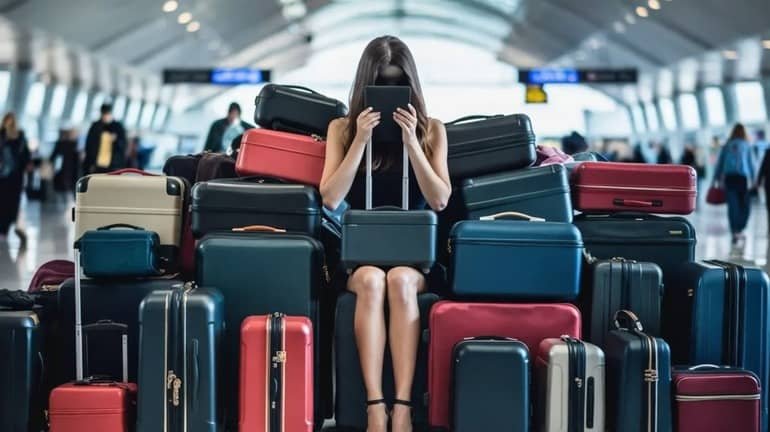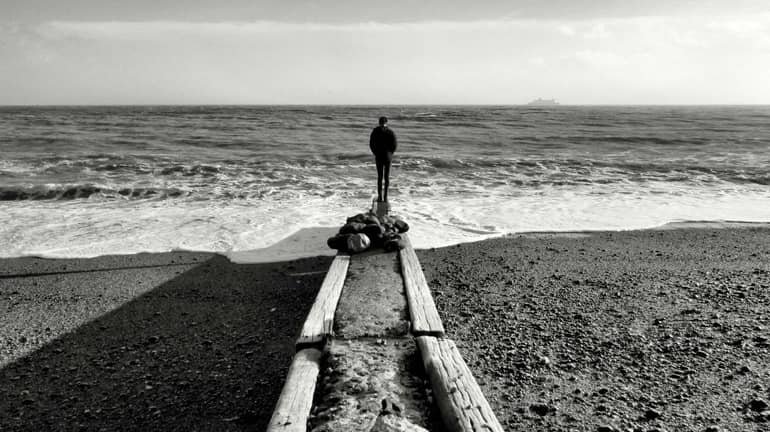For many, travel is more than a hobby or a break from routine, it is a way of life. Exploring new places, meeting different people, and experiencing unfamiliar cultures can be incredibly fulfilling. However, the constant urge to be on the move can sometimes evolve into something more powerful, almost compulsive. Travel addiction, also known as “wanderlust addiction,” is not entirely bad. It offers rich experiences, personal growth, and invaluable memories. Like any addiction, though, if uncontrolled, disadvantages may arise.
So, what is a travel addict, then? Why do some people crave travelling the world as intensely as others crave home? Let’s dive in to find what travel addiction looks and feels like, why it’s so alluring, and just how to balance the excitement of travel against life’s realities.
Understanding Travel Addiction
Though travel addiction is not considered an official medical condition, it most definitely is for those who endure it. The need to keep moving, to experience the “new,” or to escape from the familiar becomes a driving force in their lives. This urge can usually be traced back to various causes.
The thrill of exploration: The mere thought of visiting new places creates a natural high. Each new destination brings something unfamiliar and exciting, and may act as a strong motivator.
Sense of freedom: It is about freedom, which is hard to find elsewhere. On the road, routines and responsibilities fade away, leaving room for spontaneous decisions.
Self-discovery: Many people find they learn the most about themselves when they’re travelling. Solo travel adventures, cultural challenges, and new perspectives can push you out of your comfort zone, allowing room for deep personal growth.
Escaping routine: Daily life can get too monotonous or restrictive. Travel can be that escape, and a chance to experience the living free, at least for a little while.
For some, the excitement of travel becomes so compelling that it creates a need for more. I once talked with a tourist I met in Ubud, Bali, who confessed that after the first journey, he couldn’t even imagine returning home to live permanently. He solo travelled through multiple countries in Southeast Asia, living out of a backpack and constantly seeking the thrill of the unknown.
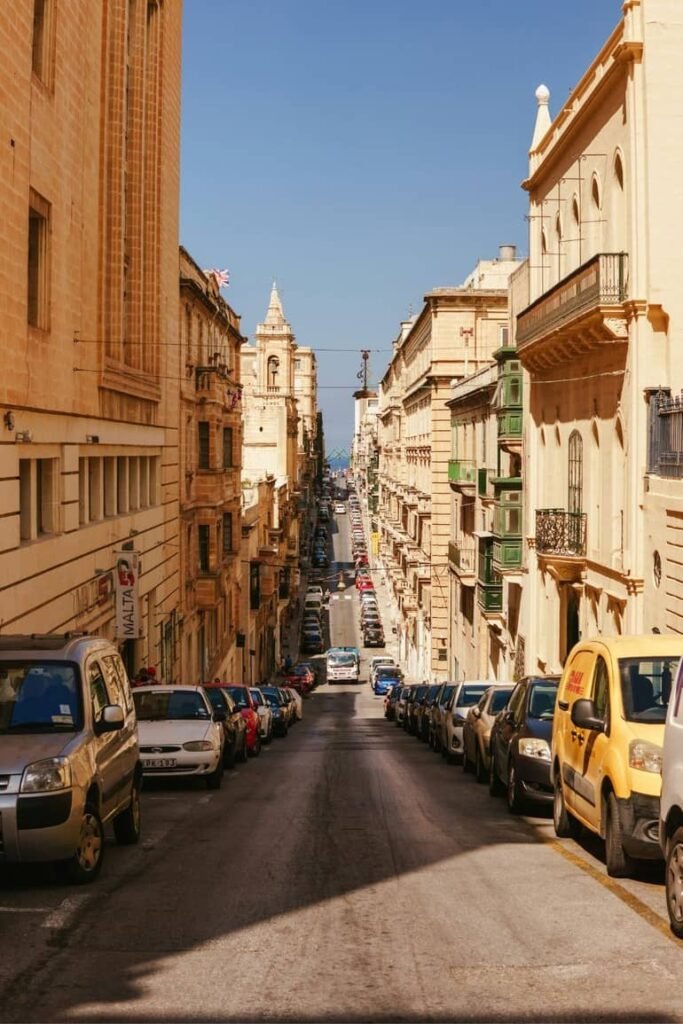
Why Travel Can Be So Addictive
Travel creates a powerful mix of emotions that can feel simply irresistible. The sense of discovery, the joy of meeting new people, the feeling of freedom-an experience that is rather hard to match. Yet beyond the emotional highs, travel addiction often explores something deeper—how travel can essentially transform us.
Constant novelty: The brain loves novelty. New sights, sounds, and experiences trigger dopamine, the “feel-good” chemical in our brains. This is where travel comes in: constant novelty that keeps us wanting more.
Feelings of accomplishment: every destination has some feeling of an accomplishment. Similarly, it’s learning a few words in a new language or finding your way around the city, or simply even arriving in a new place, travel brings a feeling of accomplishment.
Life’s richness: With every new place, there’s a whole new array of foods, sights, and sounds that somehow make your life feel all that more complete. It’s easy to see why this travelling lifestyle can feel incredibly fulfilling.
On my first long solo trip through Europe, I experienced something much more than an enjoyable, adrenaline-packed holiday. Each day, I felt a sense of purpose and excitement that was hard to find in my monotonous life back home, especially when embracing slow travel.
It was as if every new city was a small victory, each new friend, a new lesson. And by comparison, the idea of returning home to normality seemed so dull.

Signs You Might Have a Travel Addiction
So, how do you know if you’re simply passionate about travel or if you’re a travel addict? Here are a few signs your love of travel might be more than a passion.
You plan your next holiday on holiday: Even when you’re on holiday, you plan your next holiday. You browse through travel websites, check out flight prices, and dream about where to go next. I often find myself browsing Ryanair in my spare time, hunting for cheap flights.
Restlessness, if not travelling: You feel bored or unsatisfied whenever you are home. You start to daydream about the place you want to visit, and your concentration on anything else becomes limited.
You prioritise travel over other responsibilities: Your desire to travel sometimes comes at the expense of your work, relationships, or finances. You might spend money on travel even when you know you should be saving or paying bills.
Travel is your escape: When life gets overwhelming, you immediately dream of where to travel next. In other words, travel serves as an avoidance strategy for stressful events or negative feelings.
There came a point in my life when, after facing stress from work, personal, and social pressures, I found myself booking flights to escape. When I couldn’t muster the courage to face challenges at home, travel became my means of escapism. It took some reflection to recognise this pattern.

Finding Joy in Travel Obsession
It is a source of positivity in the life of many. It is a way of continuing to learn, a way of remaining inquisitive, and a way of keeping life exciting. The idea of travelling can indeed be quite enriching and fulfilling when balanced.
Growth and self-awareness: Travel pushes you to adapt, solve problems, and expand your mindset. Each destination offers a lesson to be learned, and the growth in itself is so rewarding.
Building global connections: Through travelling, you meet people from all walks of life. These connections broaden your understanding of the world and forge friendships across the globe.
Memories and stories: The experiences gained while travelling become stories you will always remember. These moments, more often than not, tend to develop into being a part of you or a story that carries an aura of adventure and development.
Resilience: It is not always easy to travel. Delays, language barriers, and the unexpected can be tough. But every time you overcome an obstacle, you build resilience.
I remember the solo trip that took me to Southeast Asia, where everything from the language barrier to the over crowding and traffic jams was a push to the limit. By the end, I felt as if I had grown in ways I never could have back home. That feeling of achievement stayed with me long after I returned, making me want to keep seeking more.
When Travel Becomes Escapism
While travel addition has its high notes, it sometimes crosses over into the realm of escapism. For some people, travel is a means of escaping problems or emotions that they might not be too fond of. If the compulsion to keep moving is to escape instead of to explore, then it becomes indicative that travel is turning out to be more of an avoidance mechanism.
Relationship Issues: Travelling continuously will make it harder to maintain a relationship with friends, family, or even a loved one. The times away from them will create distance, and it will be challenging to stay connected.
Escaping responsibility: Constant travel can sometimes be a way to avoid the responsibilities of everyday life. Work, relationships, personal commitments may be perceived as confinement, and travelling would be seen as a way to escape.
Unrealistic expectations: Continuous travel can give you an unrealistic view of life. The highs of travelling are not sustainable in the long run and sometimes may come across as disappointing upon return to “real life.”.
Financial stress: Travel can be costly, and for some, compulsive travel means over-spending, amassed debts, or financial insecurity. If travels become a necessity rather than an option, then it could be a vicious circle of financial strain.
Emotional avoidance: Some use travel as an escape from emotional disturbances, such as loneliness, boredom, or dissatisfaction. In that case, even though travel might be relieving, these issues have always managed to resurface once the excitement dissipates.
I met another traveller in Canggu, Bali, who moved from country to country without staying long enough to settle. He admitted he used travel as therapy for a breakup and the routine of his previous job. It wasn’t until much later that he realised this and told me he needed to go home and take the time to deal with these issues.
Balancing Travel with Stability
So, how does one experience travel’s high without it becoming an obsession? Well, there is a certain middle ground. Travel can be satisfying without consuming your whole life.
Travelling with purpose: Instead of travelling just for the sake of it, a person can travel with a purpose or meaning in mind. It could be to learn, push yourself out of your comfort zone, or connect with others. Whatever the reason, it can really add depth to your journeys.
Establish a home base: Even something as temporary as home can give you stability to set some sense of self. This can ward off the whole feeling of needing to move on, and a place to which you can always return that feels somewhat steady.
Spend time on relationships: As much as solo travel can be great, relationships too are something worth investing your time in. Make time to strengthen your connections, whether with friends, family, or a partner.
Budget wisely: Keeping track of what you’re spending prevents financial stress. It’s so easy to overspend on trips, so making a budget really can help you enjoy your trip and not stress about money later. This is key to how I travel on a budget.
On one trip to Spain, I embraced slow travel and decided to stay a few weeks in one city. This allowed me to get to know the place better and make long-lasting friends. That experience taught me something I had never forgotten: there is a time for balance—exploring without hurrying.
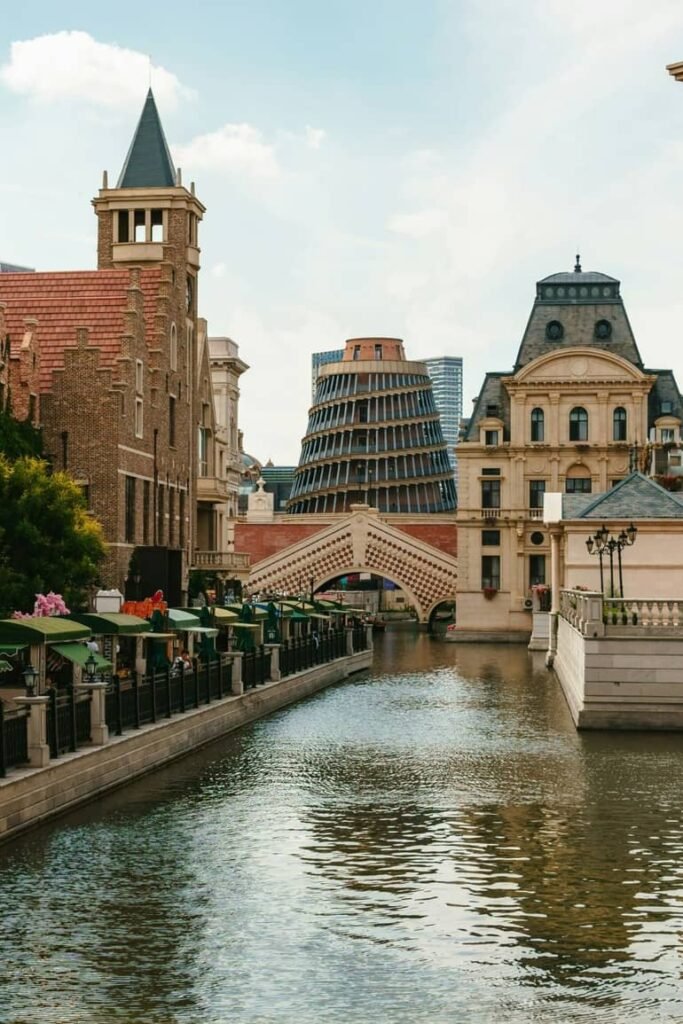
Knowing When It’s Time to Pause
Sometimes, it’s the time off between travels that makes the travel all the more worth it. Taking a break allows time to process experiences, plan thoughtfully, and avoid burnout. If the thought of travel tires you instead of exciting you, it’s usually a sign that it’s time to rest.
Reflect on your motivation: Are you travelling out of love, or compulsion to keep moving? The time taken to reflect on motivation will help you decide if it’s time to pause.
Enjoy where you are: Travel can be addictive due to constant stimulation, but appreciating where you are without feeling the need to move on can be fulfilling too. The best experiences often come from being in one place.
Reconnect with home: Whether it be seeing family, spending time with friends, or just reconnecting with your community, time off from travelling can strengthen bonds with home.
On one very long trip, despite the beauty of the places I visited, I felt drained and disconnected. However, I also learned some valuable life lessons from solo travel. Realising this, I took a break and went back home to be with my family.
The time at home helped me regain my energy, and I was able to travel again with a new perspective, feeling more connected and grateful.
Redefining What Travel Means
To the truly passionate, travel is so much more than a list of destinations visited. It can take on deeper meaning that doesn’t always have to include actual movement.
Slowing down: It is not necessary to jump from one place to the other. Slow travel will help an individual experience the atmosphere of a place rather than being in one place and leaving within a couple of days. A longer period spent in one place gives more experience and reduces the feeling of always wanting to move on.
Focus on experiences, not destinations: Rather than focusing on how many places you can visit, focus on the quality of experiences. Every place has its uniqueness to offer, and savouring such experiences makes travel more meaningful.
Travel to connect, not to escape: Let travel be to connect with new people, culture, and ideas. When it becomes a way to engage with the world rather than to escape from it, travel will be more rewarding.
On a trip to Italy, I decided to go beyond being just a tourist by learning some Italian and immersing myself in the local culture. My Italian didn’t improve much, but the locals appreciated my effort to learn their language. That experience was far more meaningful than any snapshot-laden, whirlwind tour.
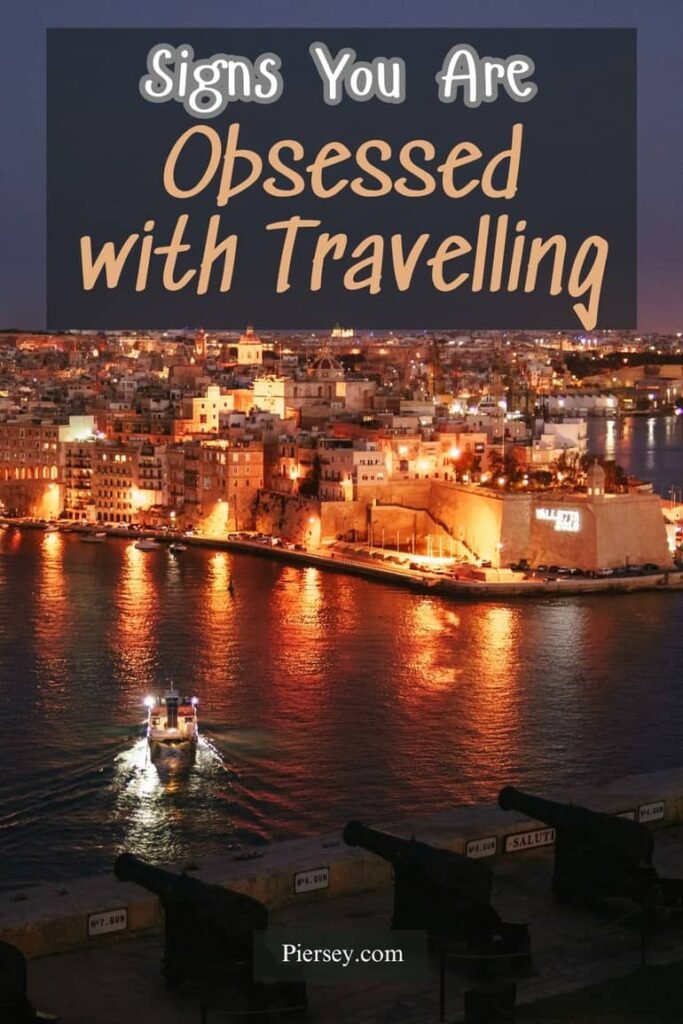
Embracing Travel as a Part of Life
To many people, a travel addiction isn’t a problem to be “solved” but part of who they are. The key is knowing how to balance and know when to stop, and in one sense, there might be some value both in the journey and in returning home.
Love every journey: Travel can bring back some of the most unforgettable memories, friendships, and lessons in your life. Embrace each journey with a sense of gratitude and curiosity.
Relish the homecoming: While travel is exciting, the return home is just as important. For one, coming back home allows you an opportunity to reflect on the experience, reconnect with loved ones, and create more travel plans for future trips.
Relish the balance: Travel and stability are not poles apart in life; they can blend together. By balancing the excitement of travel with the comforts of home, you can learn to enjoy the best of both worlds.
After a number of years travelling around the world, I found that the most fulfilling experiences were those where I could immerse myself in the culture, feel balanced, and truly enjoy each moment rather than rushing from place to place. Travel wasn’t an escape; it turned into an inspiration for when I returned home.
Enjoying the Journey
Travel addiction is, all in all, a journey of passion, growth, evolution, and change. For those who feel the pull to explore, travel becomes a source of purpose, excitement, and fulfilment. But then, as with all things in life, balance must be taken. Allow yourself to move toward embracing it while allowing time for stability and connection-a life not only rich in experiences but also meaningful.
So, if you feel the need to roam, welcome it, but also remember to enjoy the return, find balance in the pause, and the beauty of simply being present-wherever that may be.

